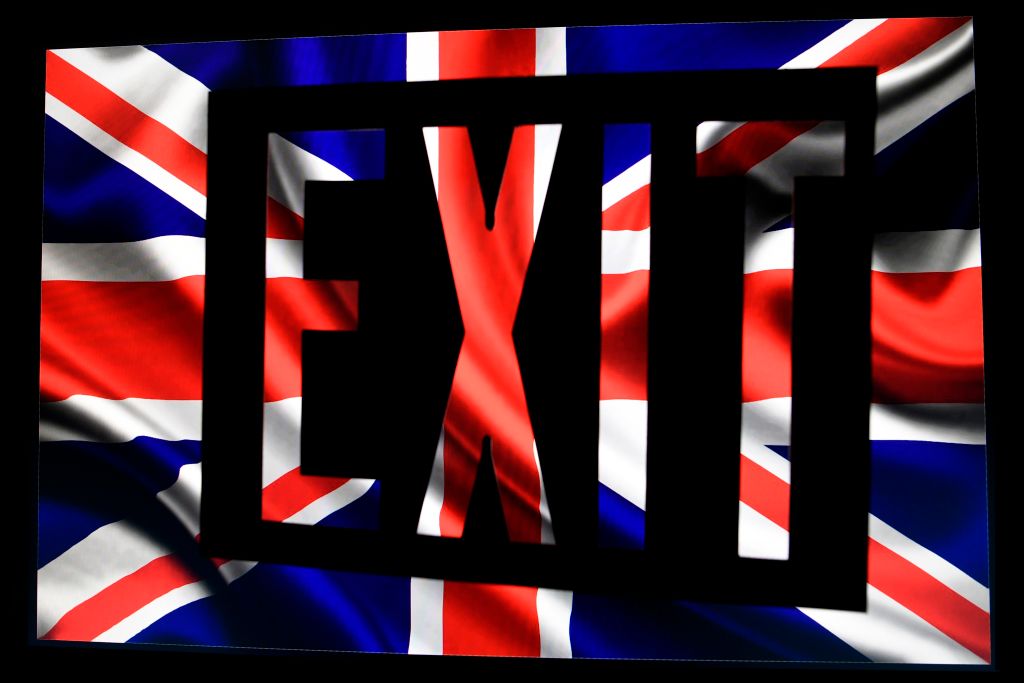Many of us British Francophiles discover early on in our relationship with la belle France that there is an undercurrent of – well, to put it bluntly, Anglophobia. It is not quite blotted out by French geniality and (usually) courtesy towards les Rosbifs individually. When we first went to France many years ago, we were frequently taken to task about burning Joan of Arc or sinking the French fleet at Mers el Kébir. Today, it takes the form of irritation at Brexit (with a confident expectation that it will bring disaster), and competition over which country has the most (or least) cases of Covid.
One rarely comes across crude Anglophobia. It takes a bantering tone in personal conversation, with many jocular references to ‘la perfide ’Albion’ – what in sensitive circles are considered ‘microaggressions’. The media, especially those on the left like Le Monde, report British bad news with relish, but minimise successes, whether in the economy, the arts, theatre, cinema, architecture, design or sport. Or they affect indifference to the point of determinedly ignoring us. This is often comical. Translations of American books are marked ‘traduit de l’Américain’. British actors, screen-writers, directors are habitually referred to only as ‘Hollywoodien’ – even in the widely-reported death of that most English of actresses, Olivia de Havilland. In the Covid stakes, the Oxford-AstraZeneca team is described as ‘Anglo-Swedish’, or better still ‘European’.
If there is a British success that cannot be ignored, it is explained away. The prominence of British universities in all world rankings for over ten years – with no other nation having so many in the top 20 other than the USA, and France none – particularly stings. It always meets with the same refrain: rankings mean nothing. Except the Financial Times ranking of business schools, in which the French have a good showing: conclusive proof of French brilliance.
What is the reason for the enduring if mild Anglophobia of much of the French middle classes, compared to the fervent Francophilia of the British middle-classes? As France and Britain have so long been rivals, and are so similar in terms of wealth and power, sensitivity is understandable, and is not unknown on this side of the Channel. But there is a difference. In Britain, scoffing at the French is usually a down-market activity, generally humorous, and associated with the right. In France, in contrast, conservatives are frequently Anglophiles who admire the Queen and dress in tweeds. It is those of left-wing views who tend to give Britain the intellectual cold shoulder.
This, surely, gives a clue: the left, both French and British, don’t much like Britain, especially England. As George Orwell put it in 1940, ‘England is perhaps the only great country whose intellectuals are ashamed of their own nationality.’ But ever since the days of Charles James Fox they have admired the French, and since the 1950s they have been in awe of French intellectuals, from Jean-Paul Sartre to Bernard-Henry Lévy, envying what they see as their celebrity status.
Orwell thought English intellectuals would rather be caught stealing from a poor box than standing up for the National Anthem. But their French equivalents seem perfectly happy to sing the Marseillaise. History provides the explanation. For the French left – especially intellectuals – France and its history are practically their property. They think they made it and in a sense own it. French history since 1789 has revolved round revolutions, and France’s official creed is ‘Republican values’. But in Britain, history is a story of continuity, in which monarchs, aristocrats and men in uniform play the leading roles. The left barely get a look in: Levellers digging turnips hardly compare with Jacobins changing the world. If this makes the British left surly, it makes the French left suspicious. If ‘perfidious Albion’ is doing badly, it reassures them that they are still surfing the wave of history. But if it seems to be doing well – an ancient monarchy and now outside the EU – ça les derange! So if necessary, they ignore it.
Does any of this matter? Well it might if, for instance, Britain was in a crisis and needed financial assistance. Would the French step up to the mark? This is exactly the question posed in a pan-European YouGov poll earlier this month measuring the net willingness of people to help other countries. It showed that in a crisis most of the French would be unwilling to help the UK. However, most Rosbifs were willing to help the French.
Of course, opinion polls tend to be volatile. But politicians do make decisions based on what they believe their public opinion will tolerate. In the July Crisis of 1914, the French ambassador was repeatedly told that Britain would only side with France if public opinion sanctioned it. Britain eventually did, but not without France’s leaders experiencing several days anguish. So despite both the current French and British strategic doctrines stating that the vital interests of one are the vital interests of the other, you cannot be sure who your true friends are until it comes to the crunch. Let’s hope that the real depth of anglo/francophobia never has to be tested.
Robert Tombs is Emeritus Professor of French History, University of Cambridge; John Keiger is Professor of International History and former Director of Research, University of Cambridge






Comments